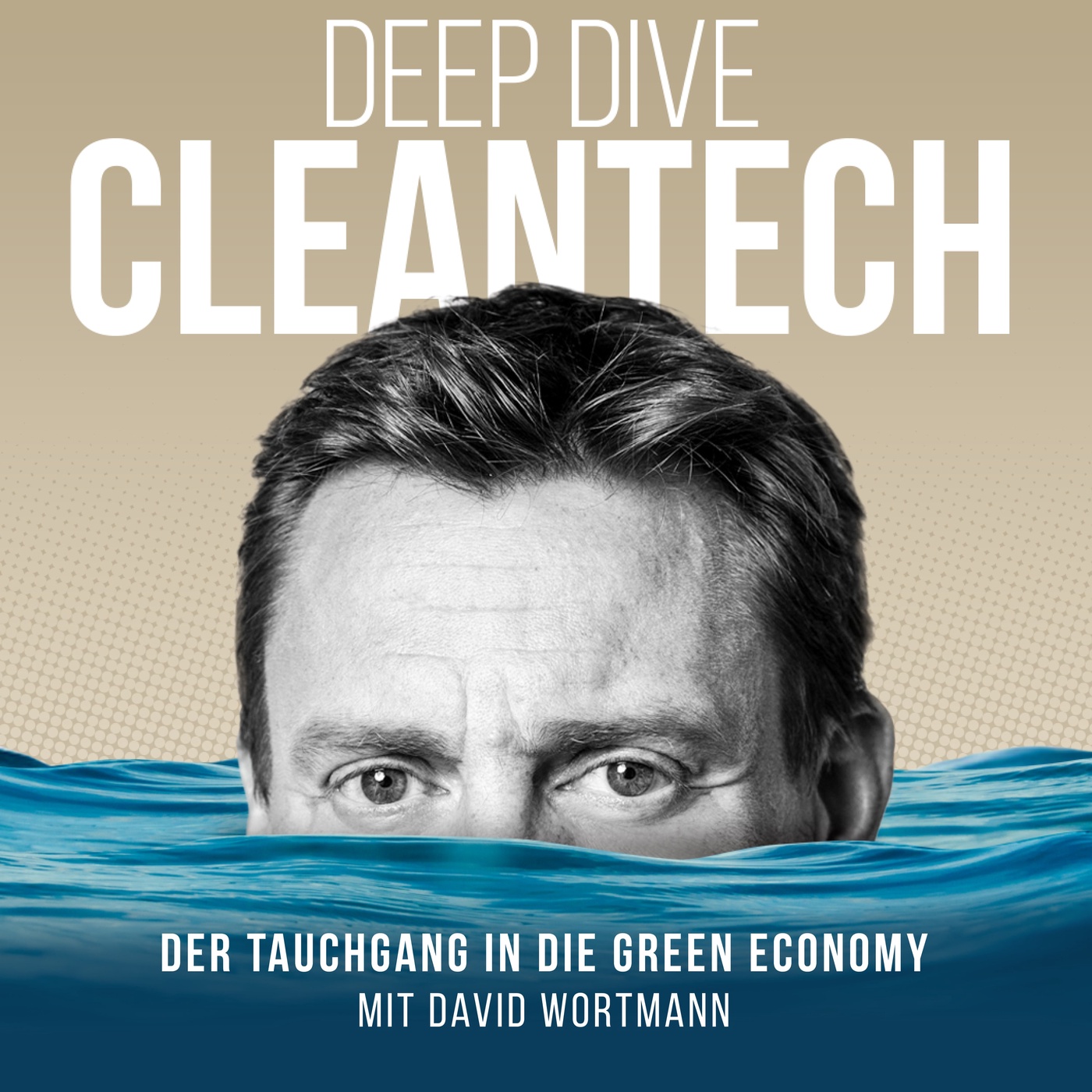
Dynamische Stromtarife und Systemflexibilität – mit Oliver Hummel, naturstrom | DeepDive CleanTech #104
In dieser Folge von DeepDive CleanTech spricht David Wortmann mit Oliver Hummel, Vorstandsvorsitzender der naturstrom AG, über die praktische Umsetzung der Energiewende – jenseits von politischen Schlagworten und Greenwashing.
Seit über 25 Jahren steht naturstrom für echten Ökostrom und den konsequenten Ausbau erneuerbarer Energien. Im Gespräch geht es um die Entwicklung des deutschen Strommarktes, die Rolle glaubwürdiger Ökostromanbieter, Investitionen in Wind- und Solaranlagen sowie die großen Baustellen der Wärme- und Mobilitätswende.
Ein Schwerpunkt der Episode liegt auf dynamischen Stromtarifen: Warum sie für ein Energiesystem mit hohem Anteil erneuerbarer Energien unverzichtbar sind, welche Rolle Smart Meter, E-Autos und Wärmepumpen spielen – und warum Flexibilität auf der Nachfrageseite zum Schlüssel für Stabilität und Kosteneffizienz wird.

Spain’s Startup Momentum – with Toni Villuendas, Angels Capital | DeepDive CleanTech #102
In this DeepDive CleanTech episode, David Wortmann speaks with Toni Villuendas, Investment Manager at Angels Capital, one of Spain’s most active early-stage investors. Angels Capital follows a distinctive philosophy: instead of chasing maximum returns, the fund focuses on supporting founders, helping companies grow and creating meaningful jobs.
Toni shares how his team invests in around 20 startups per year, why the founder often matters more than the product and which types of ventures they intentionally avoid. He also provides a snapshot of the Spanish startup and VC ecosystem, which has matured quickly in recent years and is drawing increasing attention from international investors — particularly in mobility, energy, agritech and education technologies.
He also talks about Lanzadera in Valencia, the equity-free accelerator connected to Angels Capital, and how it has helped turn the city into one of Europe’s most dynamic emerging startup hubs.

Solar-Tracking: das nächste Level smarter Stromerzeugung – mit Philipp Kunze, NextPower | DeepDive CleanTech #101
Diesmal bei DeepDive CleanTech zu Gast: Philipp Kunze, Vice President Business Development & Sales bei NextPower – dem führenden Anbieter für Solar-Tracking-Systeme, der sich kürzlich von NextTracker umbenannt hat.
Im Zentrum des Gesprächs steht die Frage, warum Single-Axis Trackingsysteme jetzt auch in Deutschland stärker in den Fokus rücken und wie sie helfen können, PV-Projekte wirtschaftlicher zu machen, Erzeugungsprofile an Strompreissignale anzupassen und Netzinfrastruktur effizienter zu nutzen. Philipp erklärt, warum Tracker in Märkten wie Kalifornien, Texas, Australien oder Spanien längst Standard sind und welche Systemvorteile sich daraus für große Freiflächen-PV ergeben.
Außerdem geht es um digitale Optimierung durch Drohnenvermessung und Smart-Tracking-Software, die Rolle von Strompreissignalen und Capture-Rates, den wachsenden Trend zu kombinierten PV- und Batteriespeicherprojekten sowie die Frage, welche regulatorischen Anpassungen nötig wären, damit solche Anlagen in Deutschland schneller umgesetzt werden können.
Wer besser verstehen möchte, wie Tracking-Systeme, Speicher und Marktmechanismen zusammenwirken und welche Rolle sie für die nächste Ausbaustufe der Solarenergie spielen – findet in diesem Gespräch viele wertvolle Impulse.

E-Lkw & Ladedepots: Die neue Logistikinfrastruktur – mit Johannes Kirnberger, Delta Charge | DeepDive CleanTech #100
In dieser DeepDive CleanTech-Episode spricht David Wortmann mit Johannes Kirnberger, Mitgründer von Delta Charge – einem jungen Unternehmen, das Batteriespeicher und Ladeinfrastruktur für elektrische Lkw im deutschen Mittelstand entwickelt, finanziert und betreibt.
Im Fokus steht die Frage, wie die Elektrifizierung des Schwerlastverkehrs gelingen kann – und warum Elektro-Trucks technologisch bereit sind, sich ökonomisch rechnen und den Logistiksektor in den nächsten Jahren grundlegend verändern dürften. Johannes erklärt, wie Speditionen ihre ersten E-Lkw-Flotten aufbauen, welche Rolle Batteriespeicher in Logistik-Depots spielen und warum die Kombination aus Solar, Speicher und intelligentem Energiemanagement zum Skalierungshebel wird.
Außerdem geht es um die jüngst abgeschlossene Finanzierungsrunde, den Ausbau des Teams und die Vision, eine neue Infrastrukturklasse aus vernetzten Depotbatterien zu etablieren, die sowohl Laden ermöglicht als auch Energie am Markt platziert.
Eine Folge für alle, die verstehen möchten, warum E-Lkw besser sind als ihr Ruf, welches Dekarbonisierungs- und Effizienzpotenzial in elektrifizierten Flotten steckt und wie sich der Logistikmarkt verändert, sobald saubere Technologien auch betriebswirtschaftlich vorne liegen.

Rethinking Daily Mobility with E-Bike Services – with Scott Murphy, Clover | DeepDive CleanTech #99
What if cities could cut car dependency with flexible e-bike subscriptions instead of private car ownership?
In this episode, David Wortmann speaks with Scott Murphy, founder and CEO of Clover, an e-bike subscription and battery-swapping service based in Valencia, Spain. They discuss why Valencia is an ideal launchpad for urban micromobility, how Clover targets medium-sized cities overlooked by big sharing schemes, and why an asset-light, service-focused model can make e-bikes accessible to far more people.
Scott explains how Clover’s approach – subscription instead of ownership, preventive maintenance, and swappable batteries – lowers the barrier to entry for everyday riders and helps cities decarbonize mobility faster. If you’re interested in the future of urban transport, this episode offers a concrete look at how e-bike services can replace more car trips in our daily lives.